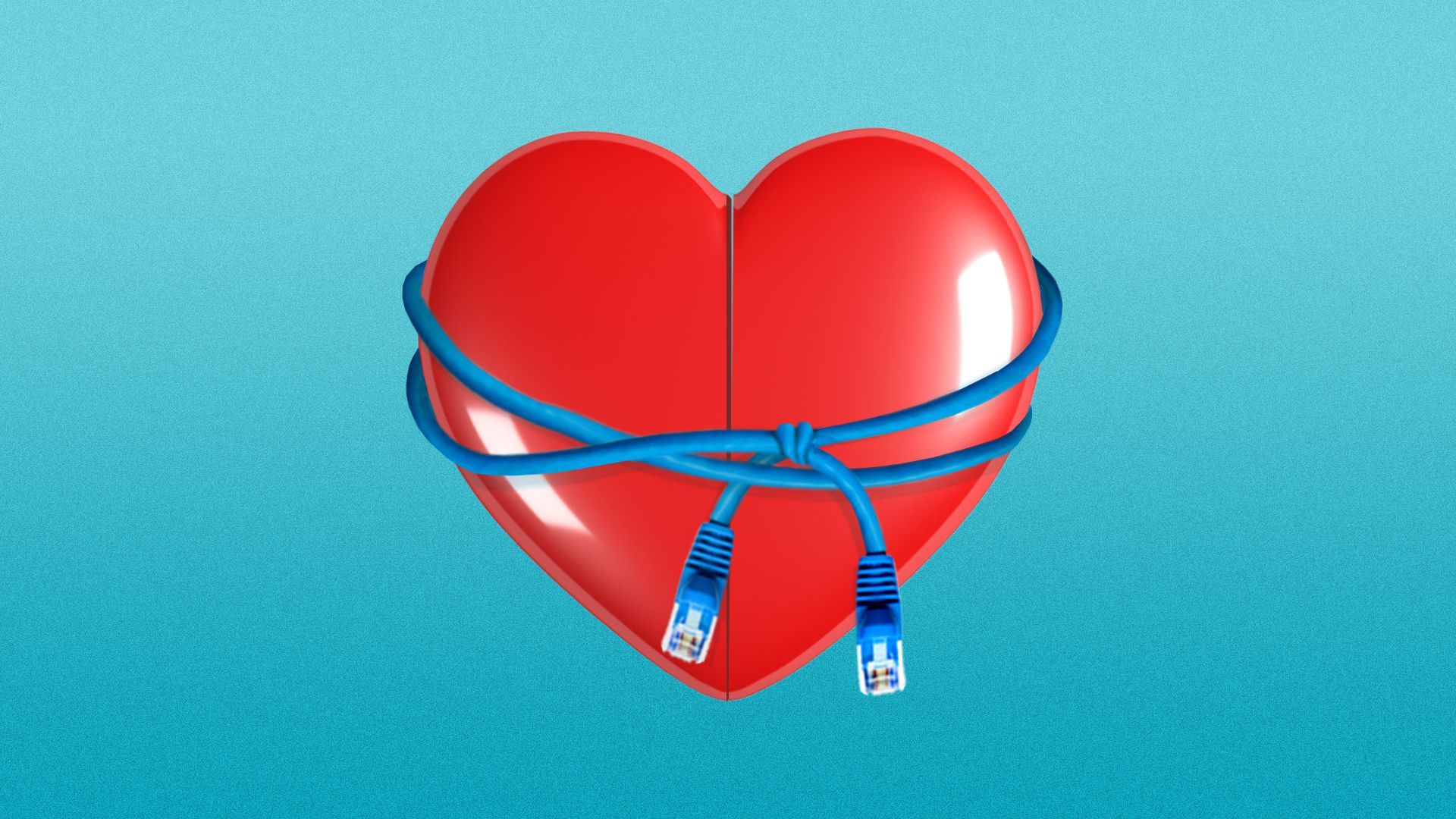Updated Jan 27, 2022 - Technology
Pandemic gave cover to online dating scams
Add Axios as your preferred source to
see more of our stories on Google.

Illustration: Annelise Capossela/Axios
Add Axios as your preferred source to
see more of our stories on Google.

Illustration: Annelise Capossela/Axios